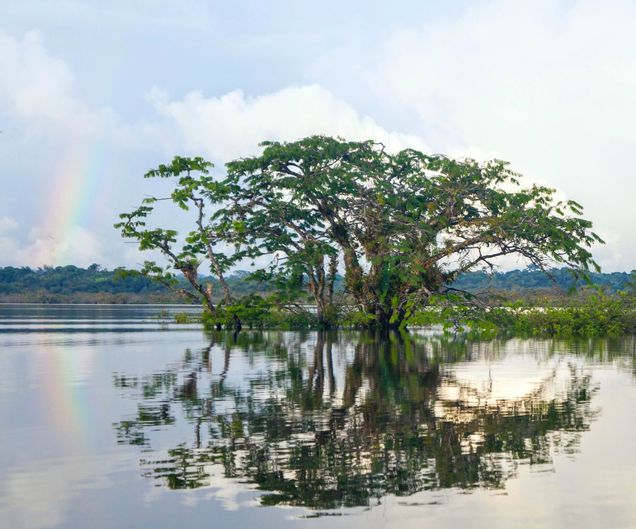A Line in the Equatorial Forests: Chinese Investment and the Environmental and Social Impacts of Extractive Industries in Ecuador

For the last several years, China has become an invaluable trading partner to Ecuador, ensuring Ecuador’s access to international credit markets after its partial bond default and provided an important source of new investment and trade revenue during the recent global downturn.
The partnership also increased the importance of petroleum in Ecuador’s overall export basket. In order to limit the social, environmental and economic risks associated with the oil sector, Ecuador has established a top-level legal framework. However, the upcoming expansion of oil production into the Ecuadorian Amazon through new concessions to Chinese state-owned enterprises (SOEs) may test Ecuador’s legal framework and Andes’ corporate goodwill.
In a new working paper, Rebecca Ray and Adam Chimienti examine the Chinese SOEs, Andes Petroleum and PetroOriental, drawing lessons for future Chinese investments.
Main findings:
- The record of Andes Petroleum and PetroOriental have had relatively positive experiences in Ecuador to date when compared to other domestic and foreign-owned firms in the sector.
- The comparatively peaceful company-community relationship enjoyed by the Chinese oil firms may be partially due to the fact that Andes Petroleum, which produces about three times as much oil as PetroOriental, is located in areas home to large scale agricultural and oil development for decades.
- However, the social and environmental landscapes in the new concession zones are vastly different from where these firms are currently located.
- Most of the area covered by the new concessions has extremely high biodiversity in four major categories: amphibians, birds, mammals and plants.
- The new concessions are also entirely covered by traditional Indigenous territory, with a majority being Sápara territory and the remainder covered by Kichwa territory. Both groups are classified by UNESCO as having endangered languages.
- The communities living in the area face lower living standards and do not have much experience negotiating with the government and foreign companies.
- Furthermore, this expansion is the first new concession under Ecuador’s recent law on prior consultation, and problems have already arisen in how the law has been applied.
- Community consultation and participation seem to have been circumvented in this case, with members of the Sápara nation claiming that majority approval was never sought.
How the government, Andes Petroleum and civil society handle this situation will determine whether the Ecuador-China relationship becomes a model of responsible oil production or whether it will betray the vision behind the country’s impressive legal framework. The researchers recommend special attention be paid to transparency and public accountability for all actors involved, including government, civil society and the oil companies themselves.
Read the Working Paper